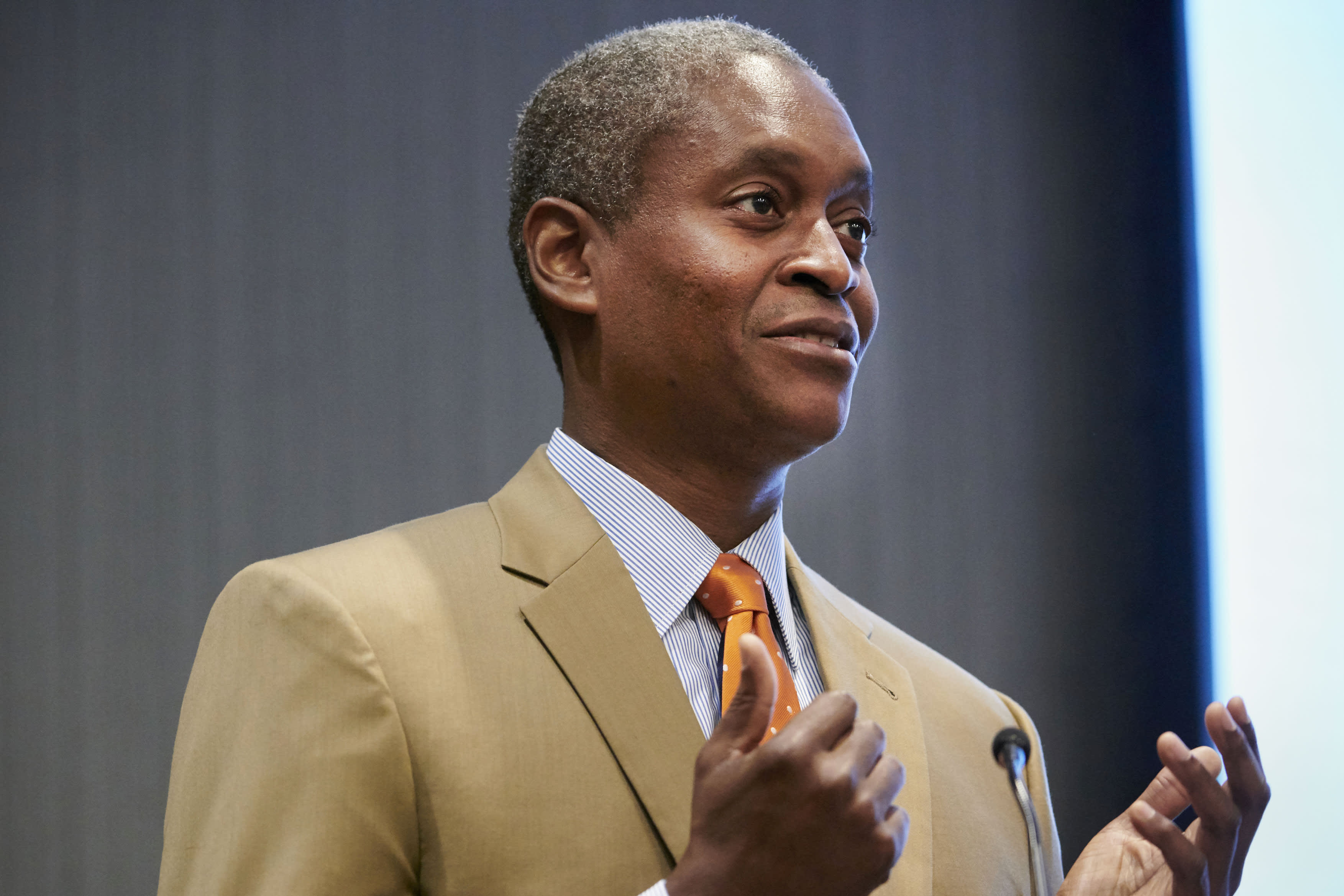
Raphael Bostic, president of the Federal Reserve of Atlanta, said on Monday he is not concerned about the overheating of the US economy, although he thinks growth could happen faster than many expect.
In an estimate well ahead of most of his colleagues, Bostic, a voting member of the policy-making Federal Open Market Committee, recently drew attention because he said he thinks the Fed may need to raise interest rates as early as mid-2022.
He based that on his expectation that the economy could quickly recover from the Coivd-19 recession once vaccinations become more widespread and the stimulus being pumped goes to more people in need.
While most Fed officials expect strong growth later this year, they don’t see any rate hikes through 2023.
“This recession was unlike anything we’ve ever had, so the recovery will be, too,” Bostic told CNBC’s “Closing Bell”. “I think there are a few things here. When we talk about 2023, 2024, it’s a long way off and a lot is going to happen that can somehow go.”
“Many of the recent developments have been positive,” he added. “We have to be open to the possibility that things will happen more strongly than they otherwise would.”
So far, Congress has allocated about $ 5 trillion in emergency relief spending for the economy, and the Fed has contributed with nearly zero short-term interest rates and more than $ 3 trillion in liquidity through its large-scale asset purchase program, known as quantitative easing.
Some market participants have recently wondered when the Fed might start pulling back on policy accommodation now that vaccines have started, more fiscal stimulus is likely to be on the way and signs of inflation are slowly starting to pick up.
While he sees interest rate hikes, maybe in a year and a half, Bostic added that he thinks the economy still needs a lot of help now.
“The main purpose of this is to keep people as whole as possible,” said Bostic. “We know that if you lose so many jobs, there will be gaps that need to be filled.”
The Fed has pledged to keep interest rates low and liquidity up, even if inflation is modestly exceeding the central bank’s 2% target. Bostic said he believes this is important given the Fed’s focus on an “inclusive” employment mandate that aims to have the widest possible base across racial and income groups.
While the Fed has said it will tolerate higher inflation, Bostic said he does not yet see any worrying signs of price pressure.
“It’s not really the inflation level, but much more the trajectory as we go further that I’ll be focusing on to get answers as to whether the economy might be moving to places I’m uncomfortable with,” he said.
Bostic also said he’s been keeping an eye on stock market price swings for companies like GameStop and others lately, but said he thinks this is more of a regulatory issue and not a concern for monetary policy.